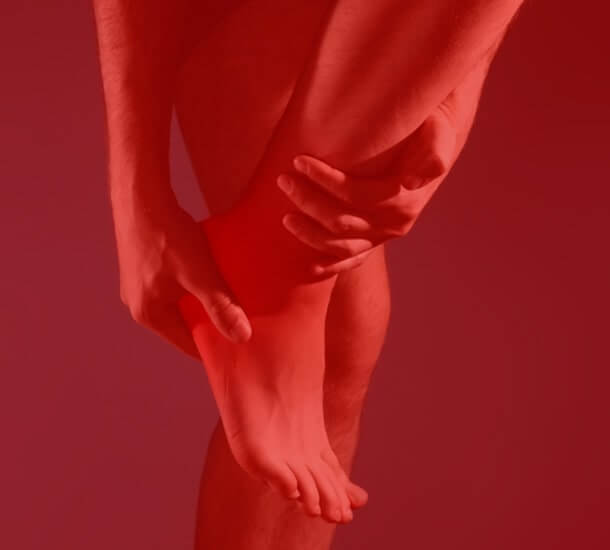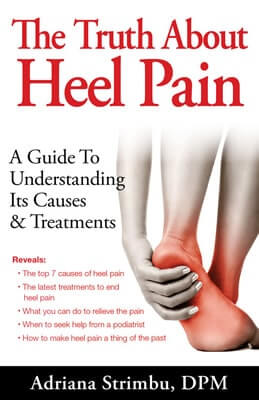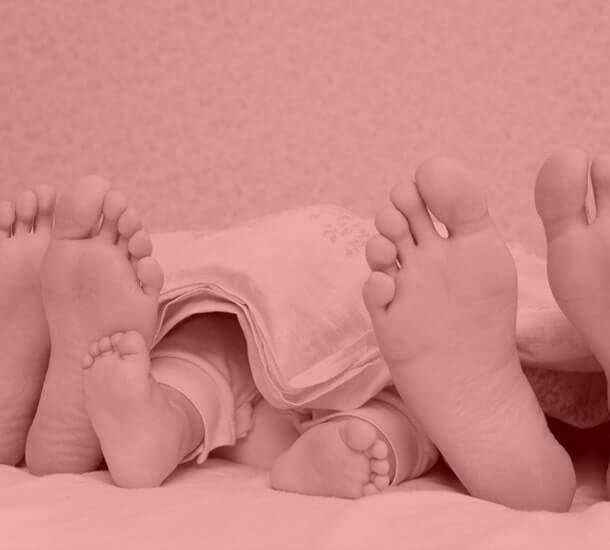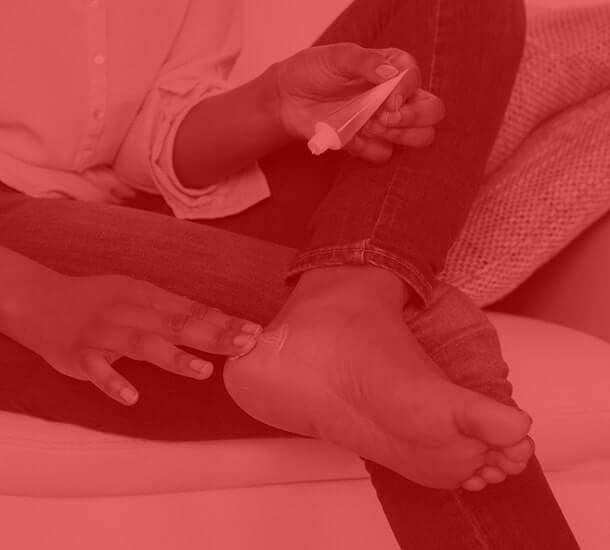What are foot corns and Calluses?
Corns and calluses are hard, thick areas of skin that form on your feet most often under pressure.
FOOT CORNS VS CALLUSES - What is the difference?
Corns are small round areas of hard skin, and usually very well defined. Corns form most of the time on non weight bearing area of the foot, like the toes, between the toes.
Calluses are much larger and vary in shape. Calluses are usually on the weight bearing area of the feet (on the soles of the feet) and mainly on the ball of the feet and heels.
FOOT CORNS VS CALLUSES VS PLANTAR WARTS - What is the difference?
Foot Corns, Calluses and Plantar warts all look the same and they all have areas of hard, thick skin. However, corns and calluses are just hard thick areas of dead skin, while a plantar warts is a virus.
Also, as opposed to the corns and calluses, the plantar warts have small capillaries growing thru them. This is why if you cut a plantar wart, you will most likely get the pin point bleeding. This pin point bleeding is very typical of plantar warts and not found in corns and calluses. This is one way we can differentiate between corns and calluses vs plantar warts.
Pictures of Corns and Calluses
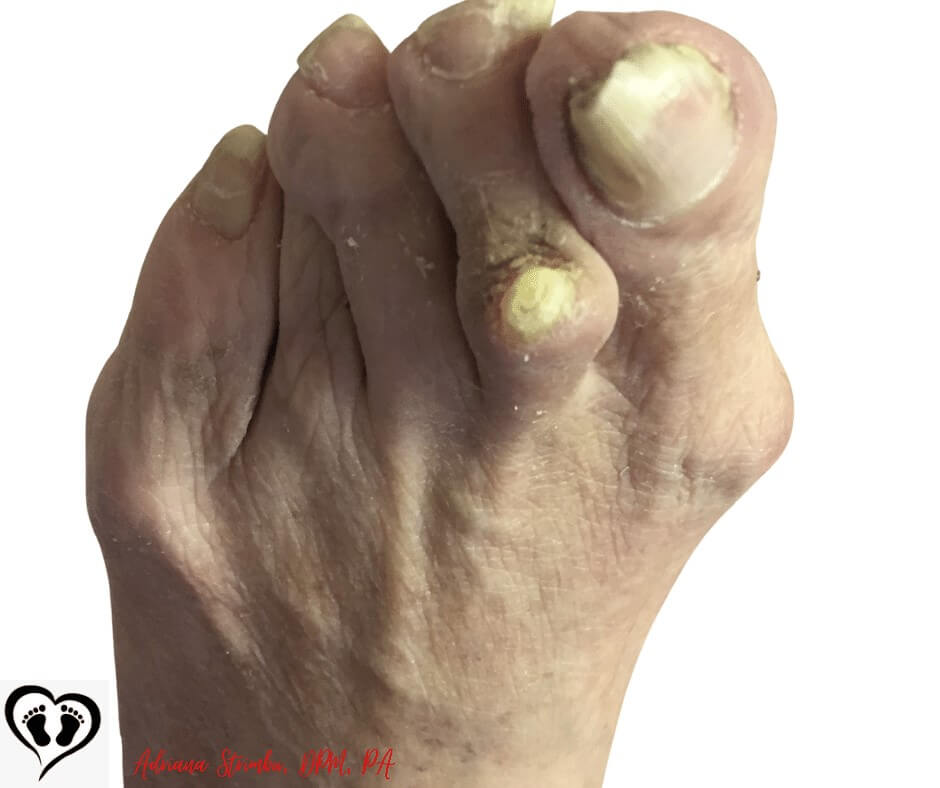
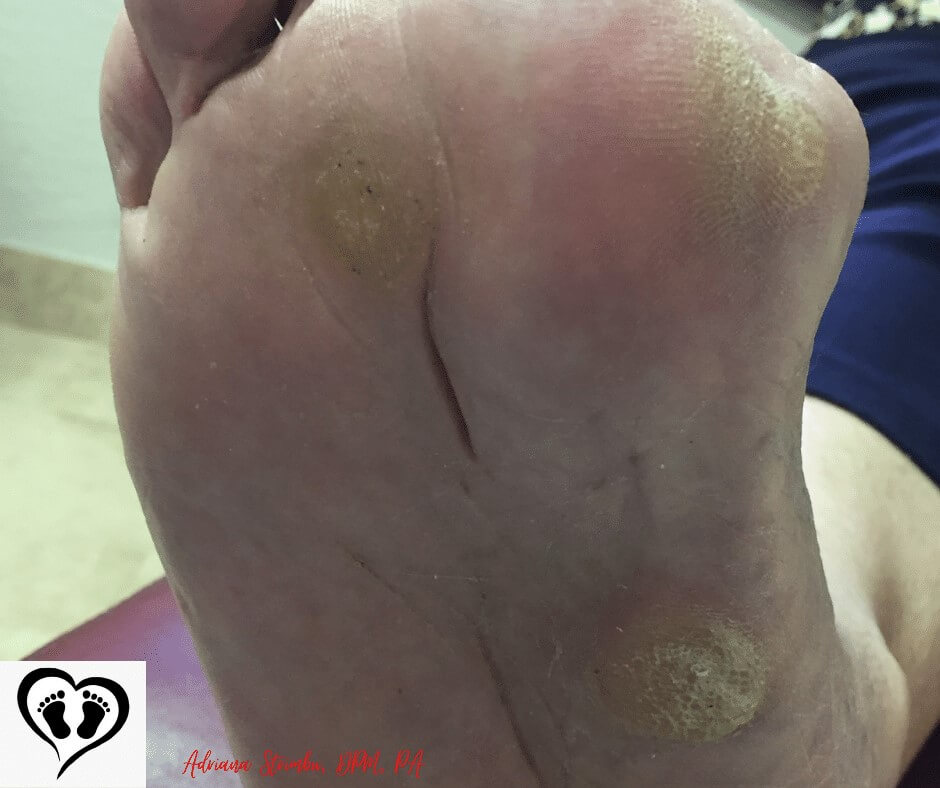
Easy way to distinguish between corns vs calluses vs warts
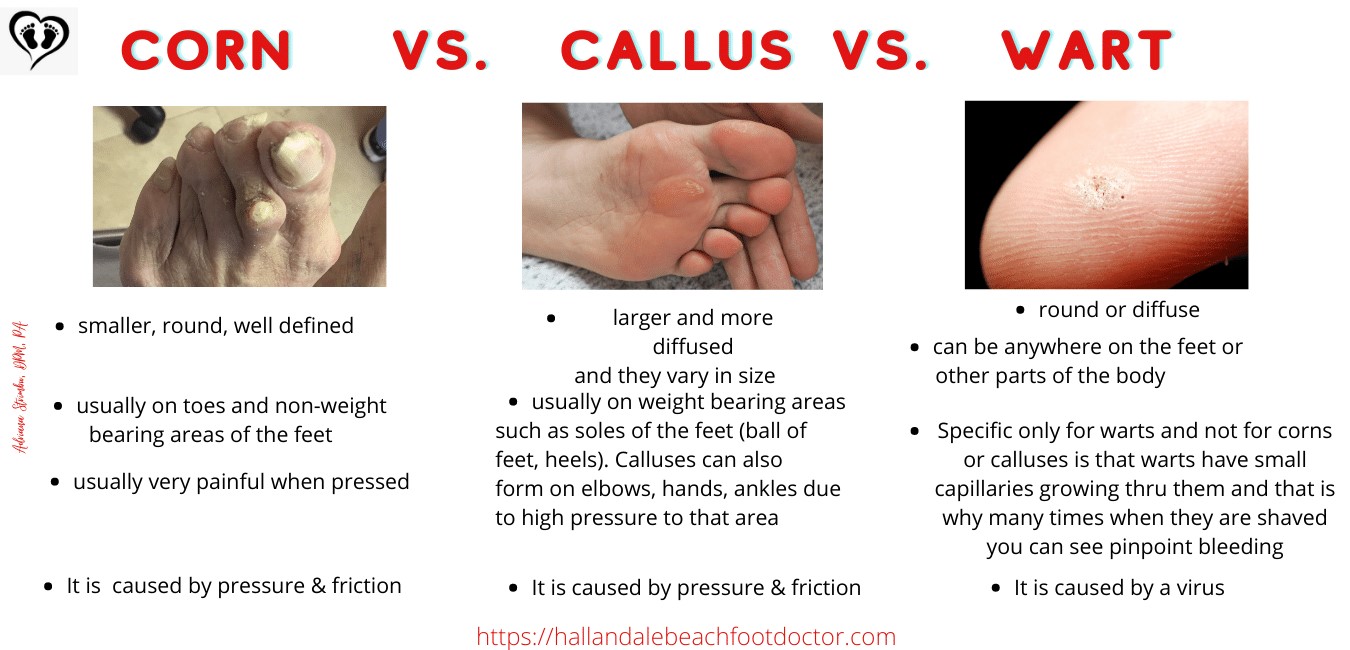
Common Asked Questions about Corns & Calluses
What are causes of causes of corns and calluses?
Some causes of corns and calluses are ill-fitting shoes, constant increased pressure, wearing shoes without socks.
Do I need to see a doctor for my corns and calluses?
It is recommended that you make an appointment to see a doctor if your callus
- Is painful
- Becomes inflamed
- If fluid comes out of it
- If pain does not resolves within few days
- Has pus
- Causes a painful break in the skin
What kind of doctor do i need to see for a corn and / or callus treatment?
A podiatrist is a doctor that is trained to diagnose and treat foot and ankle problems which includes of corns and calluses.
How will a podiatrist treat my feet corns and calluses?
It depends. First, the podiatrist will cut / trim the corns and calluses down. Second, if the corns and calluses are due to abnormal foot structure, the podiatrist might prescribe and make you custom made foot orthotics or shoe inserts. Custom orthotics will help correct the foot deformity. Since corns and calluses on the feet are very painful and if conservative treatment does not help, the podiatrist might recommend surgery for the foot deformity.
Will I be able to walk after the podiatrist treats my foot corns and calluses?
Yes. Cutting, trimming or shaving of the corns and calluses is easily done in the office and it's not supposed to hurt. It will just remove the hard and thick skin from your foot. Sometime, a foot pad is applied to the area to help decrease pressure to the area after the callus is removed.
Will my corns and calluses ever disappear?
It is possible for the corns and calluses to disappear if you correct the problem that is causing them.
For example, if a corn/callus forms because of ill fitting shoes, then you will have to change your shoe gear. Stop using those ill fitting shoes and start using wider shoes that do not create pressure to your feet.
If you a corn/callus forms because of the foot deformity and structure, then you will need to correct the foot deformity / structure of the feet. You will need custom orthotics to help correct your foot deformity.
How can we know the difference between corns and calluses vs plantar warts?
As noted above, one way to know the difference between corns and calluses and plantar warts is that when you cut a plantar wart, you will see pin point bleeding, which is small little dots of blood. Pin point bleeding upon debridement of hard skin is associated with a plantar wart.
Another way to know if you have a corn vs callus vs plantar wart is to have your podiatrist do a biopsy of this lesion. Meaning, this area will be numbed up with anesthetic, a small piece of the corn / callus / wart taken and placed in a formaline vial. This sample will then be sent to pathology for evaluation. Results will be obtained within the next week. Biopsy is the best way to 100% know the difference between corn and callus vs warts vs malignancy (cancer).
Is it possible that corn vs callus vs wart could be cancerous?
On rare occasions, it is possible that this corn vs callus vs plantar wart is cancerous. They best way to know if it is cancerous is to have your podiatrist do a biopsy of this lesion.
Can corn or calluses cause infections to the feet?
Yes. They can cause infections. If your corns and calluses are painful and irritated and if you continue to wear shoes that cause pressure to the feet, it is possible for you to get an infection. This is more so for the diabetics or patients with poor circulation, but infections can happen to anyone. This is why prompt treatment for corns and calluses on the feet is very important.
Can I remove corns and calluses on feet overnight?
While there are medications for removal of corns and calluses available over the counter, they are not a one type fits all treatment and also they are not for everyone. Caution should be taken when using any salicylic acid products or medicated corn pads since they can produce serious damage to your feet and especially in diabetics, patients with poor circulation, immunocompromised patients and if you have sensitive feet.
Why over the counter medication for corns and calluses like salicyclic acid and other medicated corn removal medication are not recommended for everyone?
Salicyclic acid and other medicated corn removal medication for corns and calluses is just ok, but it is certainly not for everyone. The problem with these over the counter remedies for your foot corns and calluses is that it is impossible to put these medications only on the small area of the corn or callus. Thus trying to apply these on the foot corn and callus, it is possible that some part of intact skin is touched and damaged. This can cause wounds and infections which is a complete disaster for a diabetic patient or for a patient with poor circulation.
What is best treatment for foot corns and calluses at home?
We recommend that when trying to treat your own foot corns and calluses at home, it is best to stay away from any medicated pads or salicylic acid solution. If you insist on trying something to alleviate the pain from a corn or callus, the best foot corn and callus treatment at home is applying a non-medicated foot pad that will protect the area, take off the pressure to that area, and avoid the shoe rubbing on it until having the corn or callus removed.
Who can do deep corn and callus removal?
Podiatrists are licensed professionals who specialize in deep corn and callus removal treatment.
How to remove a callus from a diabetic foot?
Removal of a callus or corn from a diabetic foot is best performed by a podiatrist and not something that you should be doing at home. Diabetic feet are very sensitive. Removing corns and calluses form a diabetic foot is many times not as easy as most people think. Why? A lot of the diabetics have also problems with their circulation and just a small cut could cause a wound and/or an infection which could lead to amputation.
Is it possible to have corns and calluses permanently treated?
Corns and calluses are areas of hard and thick skin that most often form either from pressure to the area or friction from your shoes. Thus, when having a corn or a callus removed whether with medication or by cutting it out by a podiatrist, you need to think about how to decrease pressure and friction to that particular area in order to avoid this corn or callus from coming back. The general rule is: as long as the pressure and friction to this area exists, the corn and calluses will also continue to form! If you don't want the corn or the callus, stop the pressure or the friction.
How can I stop the pressure and friction to my feet in order to prevent my corn and callus formation?
Some ways to stop the pressure and friction to the feet to avoid corns and calluses to the feet are:
- avoid tight shoe gear or ill fitting shoes
- wear white cotton socks
- use pads or bandaids
- use foot sleeves that provide cushion
- uses custom made foot orthotics
